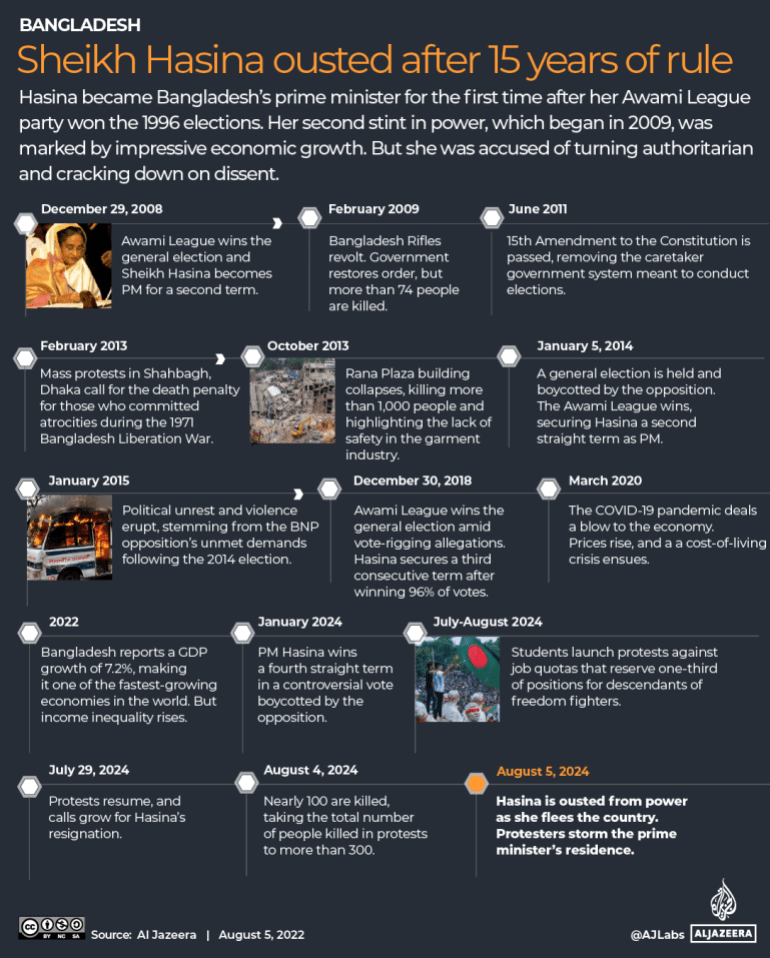The order for Zia’s release comes hours after her archrival Sheikh Hasina resigned as prime minister and fled Bangladesh.
Bangladesh’s President Mohammed Shahabuddin has ordered the release of jailed former prime minister and key opposition leader Khaleda Zia, hours after her archrival Sheikh Hasina was ousted and fled the country.
The president’s press team said in a statement on Monday that a meeting led by Shahabuddin had “decided unanimously to free Bangladesh Nationalist Party (BNP) chairperson Begum Khaleda Zia immediately”.
Army chief General Waker-Uz-Zaman, along with the head of the navy and air force, and top leaders of several opposition parties, including the BNP and the Jamaat-e-Islami party, attended the president’s meeting.
Zia, 78 and twice the prime minister of Bangladesh, is in poor health and confined to hospital after she was sentenced to 17 years in prison for corruption in 2018.
She shares a long-standing rivalry with Hasina, and was accused of misusing her power by embezzling some $250,000 in donations meant for an orphanage trust.
The BNP has said the cases were fabricated and aimed at keeping Zia away from politics, allegations denied by Hasina’s government.
“The meeting has also decided to free all the people who have been arrested during the student protests,” the president’s statement added.
More than 2,000 people had been arrested since last month during deadly street protests over a government job quota that soon transformed into a nationwide call for Hasina to quit office.
Nearly 300 people were killed in weeks of protests that the authorities sought to crush. A night of deadly violence on Sunday killed close to 100 and a curfew to quash protests was called.
Earlier on Monday, General Waker-Uz-Zaman said an interim government would be formed and the deaths in the course of the weeks-long protests would be investigated.
“I promise you all we will bring justice to all the murders and injustice. We request you to have faith in the army of the country. I take full responsibility, and I assure you to not get disheartened,” the general said.
The military also said it would lift the curfew at dawn on Tuesday and open offices, factories, schools, and colleges from 6am on Tuesday (00:00 GMT).
Reporting from Dhaka, Al Jazeera’s Tanvir Chowdhury said that despite the violence, arrests and curfew, people on the streets were jubilant over Hasina’s exit.
“Just a few minutes ago, an army patrol told protesters to go home, that the army was with them and that they should let the roads clear. They were saying the protesters were all protected and not to worry. But people are still planning to stay on the streets even though it’s not as crowded,” he said.
Chowdhury added that what happens next in the country “depends on how the interim government is formed, who its members are and how acceptable they are to the public”.
The military has a “very tough job ahead,” Irene Khan, a UN special rapporteur, told Al Jazeera.
“We are all hoping that the transition would be peaceful and that there will be accountability for all the human rights violations that have taken place.”